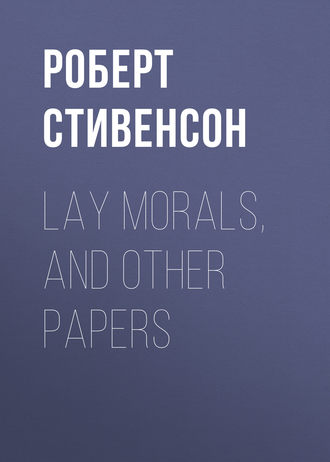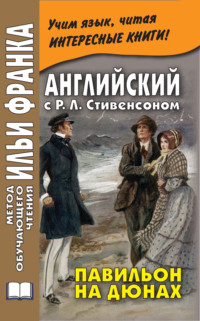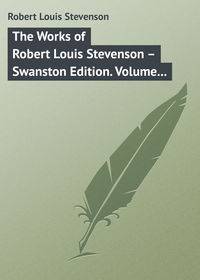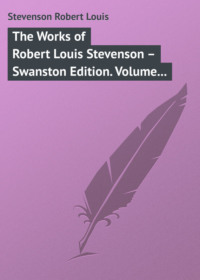 полная версия
полная версияLay Morals, and Other Papers
Honour thy father and thy mother. Yes, but does that mean to obey? and if so, how long and how far? Thou shall not kill. Yet the very intention and purport of the prohibition may be best fulfilled by killing. Thou shall not commit adultery. But some of the ugliest adulteries are committed in the bed of marriage and under the sanction of religion and law. Thou shalt not bear false witness. How? by speech or by silence also? or even by a smile? Thou shalt not steal. Ah, that indeed! But what is to steal?
To steal? It is another word to be construed; and who is to be our guide? The police will give us one construction, leaving the word only that least minimum of meaning without which society would fall in pieces; but surely we must take some higher sense than this; surely we hope more than a bare subsistence for mankind; surely we wish mankind to prosper and go on from strength to strength, and ourselves to live rightly in the eye of some more exacting potentate than a policeman. The approval or the disapproval of the police must be eternally indifferent to a man who is both valorous and good. There is extreme discomfort, but no shame, in the condemnation of the law. The law represents that modicum of morality which can be squeezed out of the ruck of mankind; but what is that to me, who aim higher and seek to be my own more stringent judge? I observe with pleasure that no brave man has ever given a rush for such considerations. The Japanese have a nobler and more sentimental feeling for this social bond into which we all are born when we come into the world, and whose comforts and protection we all indifferently share throughout our lives: – but even to them, no more than to our Western saints and heroes, does the law of the state supersede the higher law of duty. Without hesitation and without remorse, they transgress the stiffest enactments rather than abstain from doing right. But the accidental superior duty being thus fulfilled, they at once return in allegiance to the common duty of all citizens; and hasten to denounce themselves; and value at an equal rate their just crime and their equally just submission to its punishment.
The evading of the police will not long satisfy an active conscience or a thoughtful head. But to show you how one or the other may trouble a man, and what a vast extent of frontier is left unridden by this invaluable eighth commandment, let me tell you a few pages out of a young man’s life.
He was a friend of mine; a young man like others; generous, flighty, as variable as youth itself, but always with some high motions and on the search for higher thoughts of life. I should tell you at once that he thoroughly agrees with the eighth commandment. But he got hold of some unsettling works, the New Testament among others, and this loosened his views of life and led him into many perplexities. As he was the son of a man in a certain position, and well off, my friend had enjoyed from the first the advantages of education, nay, he had been kept alive through a sickly childhood by constant watchfulness, comforts, and change of air; for all of which he was indebted to his father’s wealth.
At college he met other lads more diligent than himself, who followed the plough in summer-time to pay their college fees in winter; and this inequality struck him with some force. He was at that age of a conversible temper, and insatiably curious in the aspects of life; and he spent much of his time scraping acquaintance with all classes of man- and woman-kind. In this way he came upon many depressed ambitions, and many intelligences stunted for want of opportunity; and this also struck him. He began to perceive that life was a handicap upon strange, wrong-sided principles; and not, as he had been told, a fair and equal race. He began to tremble that he himself had been unjustly favoured, when he saw all the avenues of wealth, and power, and comfort closed against so many of his superiors and equals, and held unwearyingly open before so idle, so desultory, and so dissolute a being as himself. There sat a youth beside him on the college benches, who had only one shirt to his back, and, at intervals sufficiently far apart, must stay at home to have it washed. It was my friend’s principle to stay away as often as he dared; for I fear he was no friend to learning. But there was something that came home to him sharply, in this fellow who had to give over study till his shirt was washed, and the scores of others who had never an opportunity at all. If one of these could take his place, he thought; and the thought tore away a bandage from his eyes. He was eaten by the shame of his discoveries, and despised himself as an unworthy favourite and a creature of the back-stairs of Fortune. He could no longer see without confusion one of these brave young fellows battling up-hill against adversity. Had he not filched that fellow’s birthright? At best was he not coldly profiting by the injustice of society, and greedily devouring stolen goods? The money, indeed, belonged to his father, who had worked, and thought, and given up his liberty to earn it; but by what justice could the money belong to my friend, who had, as yet, done nothing but help to squander it? A more sturdy honesty, joined to a more even and impartial temperament, would have drawn from these considerations a new force of industry, that this equivocal position might be brought as swiftly as possible to an end, and some good services to mankind justify the appropriation of expense. It was not so with my friend, who was only unsettled and discouraged, and filled full of that trumpeting anger with which young men regard injustices in the first blush of youth; although in a few years they will tamely acquiesce in their existence, and knowingly profit by their complications. Yet all this while he suffered many indignant pangs. And once, when he put on his boots, like any other unripe donkey, to run away from home, it was his best consolation that he was now, at a single plunge, to free himself from the responsibility of this wealth that was not his, and do battle equally against his fellows in the warfare of life.
Some time after this, falling into ill-health, he was sent at great expense to a more favourable climate; and then I think his perplexities were thickest. When he thought of all the other young men of singular promise, upright, good, the prop of families, who must remain at home to die, and with all their possibilities be lost to life and mankind; and how he, by one more unmerited favour, was chosen out from all these others to survive; he felt as if there were no life, no labour, no devotion of soul and body, that could repay and justify these partialities. A religious lady, to whom he communicated these reflections, could see no force in them whatever. ‘It was God’s will,’ said she. But he knew it was by God’s will that Joan of Arc was burnt at Rouen, which cleared neither Bedford nor Bishop Cauchon; and again, by God’s will that Christ was crucified outside Jerusalem, which excused neither the rancour of the priests nor the timidity of Pilate. He knew, moreover, that although the possibility of this favour he was now enjoying issued from his circumstances, its acceptance was the act of his own will; and he had accepted it greedily, longing for rest and sunshine. And hence this allegation of God’s providence did little to relieve his scruples. I promise you he had a very troubled mind. And I would not laugh if I were you, though while he was thus making mountains out of what you think molehills, he were still (as perhaps he was) contentedly practising many other things that to you seem black as hell. Every man is his own judge and mountain-guide through life. There is an old story of a mote and a beam, apparently not true, but worthy perhaps of some consideration. I should, if I were you, give some consideration to these scruples of his, and if I were he, I should do the like by yours; for it is not unlikely that there may be something under both. In the meantime you must hear how my friend acted. Like many invalids, he supposed that he would die. Now, should he die, he saw no means of repaying this huge loan which, by the hands of his father, mankind had advanced him for his sickness. In that case it would be lost money. So he determined that the advance should be as small as possible; and, so long as he continued to doubt his recovery, lived in an upper room, and grudged himself all but necessaries. But so soon as he began to perceive a change for the better, he felt justified in spending more freely, to speed and brighten his return to health, and trusted in the future to lend a help to mankind, as mankind, out of its treasury, had lent a help to him.
I do not say but that my friend was a little too curious and partial in his view; nor thought too much of himself and too little of his parents; but I do say that here are some scruples which tormented my friend in his youth, and still, perhaps, at odd times give him a prick in the midst of his enjoyments, and which after all have some foundation in justice, and point, in their confused way, to some more honourable honesty within the reach of man. And at least, is not this an unusual gloss upon the eighth commandment? And what sort of comfort, guidance, or illumination did that precept afford my friend throughout these contentions? ‘Thou shalt not steal.’ With all my heart! But am I stealing?
The truly quaint materialism of our view of life disables us from pursuing any transaction to an end. You can make no one understand that his bargain is anything more than a bargain, whereas in point of fact it is a link in the policy of mankind, and either a good or an evil to the world. We have a sort of blindness which prevents us from seeing anything but sovereigns. If one man agrees to give another so many shillings for so many hours’ work, and then wilfully gives him a certain proportion of the price in bad money and only the remainder in good, we can see with half an eye that this man is a thief. But if the other spends a certain proportion of the hours in smoking a pipe of tobacco, and a certain other proportion in looking at the sky, or the clock, or trying to recall an air, or in meditation on his own past adventures, and only the remainder in downright work such as he is paid to do, is he, because the theft is one of time and not of money, – is he any the less a thief? The one gave a bad shilling, the other an imperfect hour; but both broke the bargain, and each is a thief. In piecework, which is what most of us do, the case is none the less plain for being even less material. If you forge a bad knife, you have wasted some of mankind’s iron, and then, with unrivalled cynicism, you pocket some of mankind’s money for your trouble. Is there any man so blind who cannot see that this is theft? Again, if you carelessly cultivate a farm, you have been playing fast and loose with mankind’s resources against hunger; there will be less bread in consequence, and for lack of that bread somebody will die next winter: a grim consideration. And you must not hope to shuffle out of blame because you got less money for your less quantity of bread; for although a theft be partly punished, it is none the less a theft for that. You took the farm against competitors; there were others ready to shoulder the responsibility and be answerable for the tale of loaves; but it was you who took it. By the act you came under a tacit bargain with mankind to cultivate that farm with your best endeavour; you were under no superintendence, you were on parole; and you have broke your bargain, and to all who look closely, and yourself among the rest if you have moral eyesight, you are a thief. Or take the case of men of letters. Every piece of work which is not as good as you can make it, which you have palmed off imperfect, meagrely thought, niggardly in execution, upon mankind who is your paymaster on parole and in a sense your pupil, every hasty or slovenly or untrue performance, should rise up against you in the court of your own heart and condemn you for a thief. Have you a salary? If you trifle with your health, and so render yourself less capable for duty, and still touch, and still greedily pocket the emolument – what are you but a thief? Have you double accounts? do you by any time-honoured juggle, deceit, or ambiguous process, gain more from those who deal with you than it you were bargaining and dealing face to face in front of God? – What are you but a thief? Lastly, if you fill an office, or produce an article, which, in your heart of hearts, you think a delusion and a fraud upon mankind, and still draw your salary and go through the sham manœuvres of this office, or still book your profits and keep on flooding the world with these injurious goods? – though you were old, and bald, and the first at church, and a baronet, what are you but a thief? These may seem hard words and mere curiosities of the intellect, in an age when the spirit of honesty is so sparingly cultivated that all business is conducted upon lies and so-called customs of the trade, that not a man bestows two thoughts on the utility or honourableness of his pursuit. I would say less if I thought less. But looking to my own reason and the right of things, I can only avow that I am a thief myself, and that I passionately suspect my neighbours of the same guilt.
Where did you hear that it was easy to be honest? Do you find that in your Bible? Easy! It is easy to be an ass and follow the multitude like a blind, besotted bull in a stampede; and that, I am well aware, is what you and Mrs. Grundy mean by being honest. But it will not bear the stress of time nor the scrutiny of conscience. Even before the lowest of all tribunals, – before a court of law, whose business it is, not to keep men right, or within a thousand miles of right, but to withhold them from going so tragically wrong that they will pull down the whole jointed fabric of society by their misdeeds – even before a court of law, as we begin to see in these last days, our easy view of following at each other’s tails, alike to good and evil, is beginning to be reproved and punished, and declared no honesty at all, but open theft and swindling; and simpletons who have gone on through life with a quiet conscience may learn suddenly, from the lips of a judge, that the custom of the trade may be a custom of the devil. You thought it was easy to be honest. Did you think it was easy to be just and kind and truthful? Did you think the whole duty of aspiring man was as simple as a horn-pipe? and you could walk through life like a gentleman and a hero, with no more concern than it takes to go to church or to address a circular? And yet all this time you had the eighth commandment! and, what makes it richer, you would not have broken it for the world!
The truth is, that these commandments by themselves are of little use in private judgment. If compression is what you want, you have their whole spirit compressed into the golden rule; and yet there expressed with more significance, since the law is there spiritually and not materially stated. And in truth, four out of these ten commands, from the sixth to the ninth, are rather legal than ethical. The police-court is their proper home. A magistrate cannot tell whether you love your neighbour as yourself, but he can tell more or less whether you have murdered, or stolen, or committed adultery, or held up your hand and testified to that which was not; and these things, for rough practical tests, are as good as can be found. And perhaps, therefore, the best condensation of the Jewish moral law is in the maxims of the priests, ‘neminem lædere’ and ‘suum cuique tribuere.’ But all this granted, it becomes only the more plain that they are inadequate in the sphere of personal morality; that while they tell the magistrate roughly when to punish, they can never direct an anxious sinner what to do.
Only Polonius, or the like solemn sort of ass, can offer us a succinct proverb by way of advice, and not burst out blushing in our faces. We grant them one and all and for all that they are worth; it is something above and beyond that we desire. Christ was in general a great enemy to such a way of teaching; we rarely find him meddling with any of these plump commands but it was to open them out, and lift his hearers from the letter to the spirit. For morals are a personal affair; in the war of righteousness every man fights for his own hand; all the six hundred precepts of the Mishna cannot shake my private judgment; my magistracy of myself is an indefeasible charge, and my decisions absolute for the time and case. The moralist is not a judge of appeal, but an advocate who pleads at my tribunal. He has to show not the law, but that the law applies. Can he convince me? then he gains the cause. And thus you find Christ giving various counsels to varying people, and often jealously careful to avoid definite precept. Is he asked, for example, to divide a heritage? He refuses: and the best advice that he will offer is but a paraphrase of that tenth commandment which figures so strangely among the rest. Take heed, and beware of covetousness. If you complain that this is vague, I have failed to carry you along with me in my argument. For no definite precept can be more than an illustration, though its truth were resplendent like the sun, and it was announced from heaven by the voice of God. And life is so intricate and changing, that perhaps not twenty times, or perhaps not twice in the ages, shall we find that nice consent of circumstances to which alone it can apply.
CHAPTER III
Although the world and life have in a sense become commonplace to our experience, it is but in an external torpor; the true sentiment slumbers within us; and we have but to reflect on ourselves or our surroundings to rekindle our astonishment. No length of habit can blunt our first surprise. Of the world I have but little to say in this connection; a few strokes shall suffice. We inhabit a dead ember swimming wide in the blank of space, dizzily spinning as it swims, and lighted up from several million miles away by a more horrible hell-fire than was ever conceived by the theological imagination. Yet the dead ember is a green, commodious dwelling-place; and the reverberation of this hell-fire ripens flower and fruit and mildly warms us on summer eves upon the lawn. Far off on all hands other dead embers, other flaming suns, wheel and race in the apparent void; the nearest is out of call, the farthest so far that the heart sickens in the effort to conceive the distance. Shipwrecked seamen on the deep, though they bestride but the truncheon of a boom, are safe and near at home compared with mankind on its bullet. Even to us who have known no other, it seems a strange, if not an appalling, place of residence.
But far stranger is the resident, man, a creature compact of wonders that, after centuries of custom, is still wonderful to himself. He inhabits a body which he is continually outliving, discarding and renewing. Food and sleep, by an unknown alchemy, restore his spirits and the freshness of his countenance. Hair grows on him like grass; his eyes, his brain, his sinews, thirst for action; he joys to see and touch and hear, to partake the sun and wind, to sit down and intently ponder on his astonishing attributes and situation, to rise up and run, to perform the strange and revolting round of physical functions. The sight of a flower, the note of a bird, will often move him deeply; yet he looks unconcerned on the impassable distances and portentous bonfires of the universe. He comprehends, he designs, he tames nature, rides the sea, ploughs, climbs the air in a balloon, makes vast inquiries, begins interminable labours, joins himself into federations and populous cities, spends his days to deliver the ends of the earth or to benefit unborn posterity; and yet knows himself for a piece of unsurpassed fragility and the creature of a few days. His sight, which conducts him, which takes notice of the farthest stars, which is miraculous in every way and a thing defying explanation or belief, is yet lodged in a piece of jelly, and can be extinguished with a touch. His heart, which all through life so indomitably, so athletically labours, is but a capsule, and may be stopped with a pin. His whole body, for all its savage energies, its leaping and its winged desires, may yet be tamed and conquered by a draught of air or a sprinkling of cold dew. What he calls death, which is the seeming arrest of everything, and the ruin and hateful transformation of the visible body, lies in wait for him outwardly in a thousand accidents, and grows up in secret diseases from within. He is still learning to be a man when his faculties are already beginning to decline; he has not yet understood himself or his position before he inevitably dies. And yet this mad, chimerical creature can take no thought of his last end, lives as though he were eternal, plunges with his vulnerable body into the shock of war, and daily affronts death with unconcern. He cannot take a step without pain or pleasure. His life is a tissue of sensations, which he distinguishes as they seem to come more directly from himself or his surroundings. He is conscious of himself as a joyer or a sufferer, as that which craves, chooses, and is satisfied; conscious of his surroundings as it were of an inexhaustible purveyor, the source of aspects, inspirations, wonders, cruel knocks and transporting caresses. Thus he goes on his way, stumbling among delights and agonies.
Matter is a far-fetched theory, and materialism is without a root in man. To him everything is important in the degree to which it moves him. The telegraph wires and posts, the electricity speeding from clerk to clerk, the clerks, the glad or sorrowful import of the message, and the paper on which it is finally brought to him at home, are all equally facts, all equally exist for man. A word or a thought can wound him as acutely as a knife of steel. If he thinks he is loved, he will rise up and glory to himself, although he be in a distant land and short of necessary bread. Does he think he is not loved? – he may have the woman at his beck, and there is not a joy for him in all the world. Indeed, if we are to make any account of this figment of reason, the distinction between material and immaterial, we shall conclude that the life of each man as an individual is immaterial, although the continuation and prospects of mankind as a race turn upon material conditions. The physical business of each man’s body is transacted for him; like a sybarite, he has attentive valets in his own viscera; he breathes, he sweats, he digests without an effort, or so much as a consenting volition; for the most part he even eats, not with a wakeful consciousness, but as it were between two thoughts. His life is centred among other and more important considerations; touch him in his honour or his love, creatures of the imagination which attach him to mankind or to an individual man or woman; cross him in his piety which connects his soul with heaven; and he turns from his food, he loathes his breath, and with a magnanimous emotion cuts the knots of his existence and frees himself at a blow from the web of pains and pleasures.
It follows that man is twofold at least; that he is not a rounded and autonomous empire; but that in the same body with him there dwell other powers tributary but independent. If I now behold one walking in a garden, curiously coloured and illuminated by the sun, digesting his food with elaborate chemistry, breathing, circulating blood, directing himself by the sight of his eyes, accommodating his body by a thousand delicate balancings to the wind and the uneven surface of the path, and all the time, perhaps, with his mind engaged about America, or the dog-star, or the attributes of God – what am I to say, or how am I to describe the thing I see? Is that truly a man, in the rigorous meaning of the word? or is it not a man and something else? What, then, are we to count the centre-bit and axle of a being so variously compounded? It is a question much debated. Some read his history in a certain intricacy of nerve and the success of successive digestions; others find him an exiled piece of heaven blown upon and determined by the breath of God; and both schools of theorists will scream like scalded children at a word of doubt. Yet either of these views, however plausible, is beside the question; either may be right; and I care not; I ask a more particular answer, and to a more immediate point. What is the man? There is Something that was before hunger and that remains behind after a meal. It may or may not be engaged in any given act or passion, but when it is, it changes, heightens, and sanctifies. Thus it is not engaged in lust, where satisfaction ends the chapter; and it is engaged in love, where no satisfaction can blunt the edge of the desire, and where age, sickness, or alienation may deface what was desirable without diminishing the sentiment. This something, which is the man, is a permanence which abides through the vicissitudes of passion, now overwhelmed and now triumphant, now unconscious of itself in the immediate distress of appetite or pain, now rising unclouded above all. So, to the man, his own central self fades and grows clear again amid the tumult of the senses, like a revolving Pharos in the night. It is forgotten; it is hid, it seems, for ever; and yet in the next calm hour he shall behold himself once more, shining and unmoved among changes and storm.









